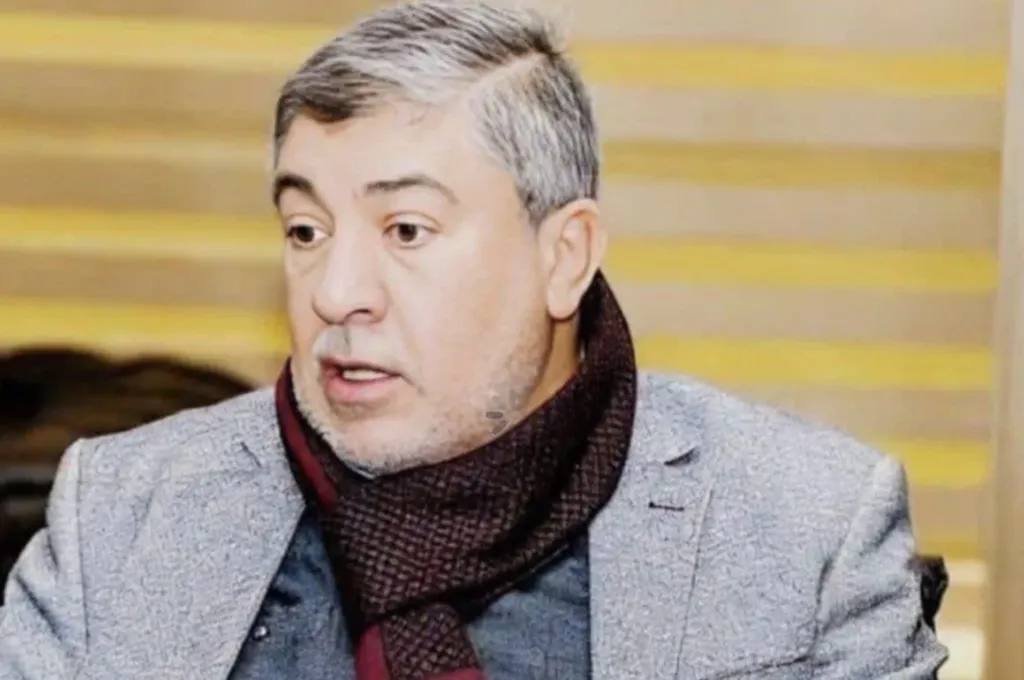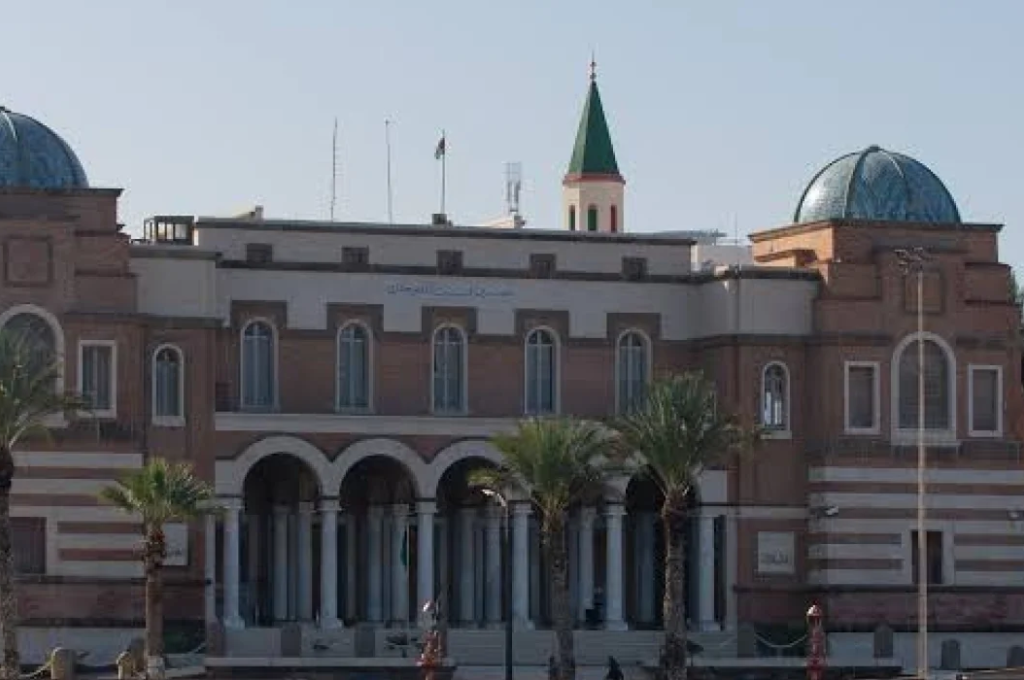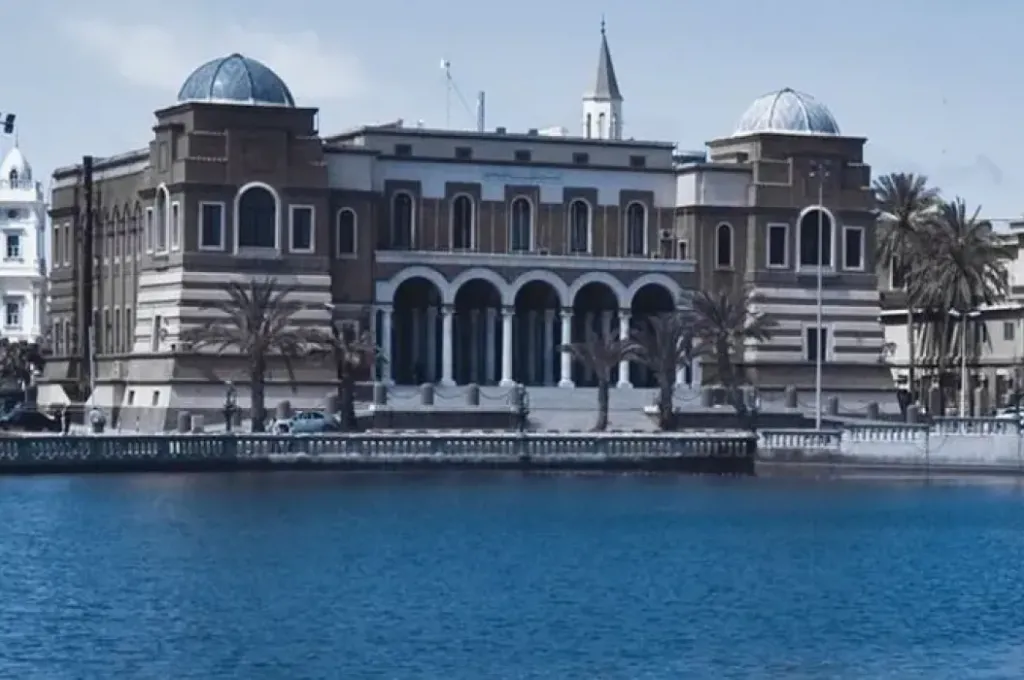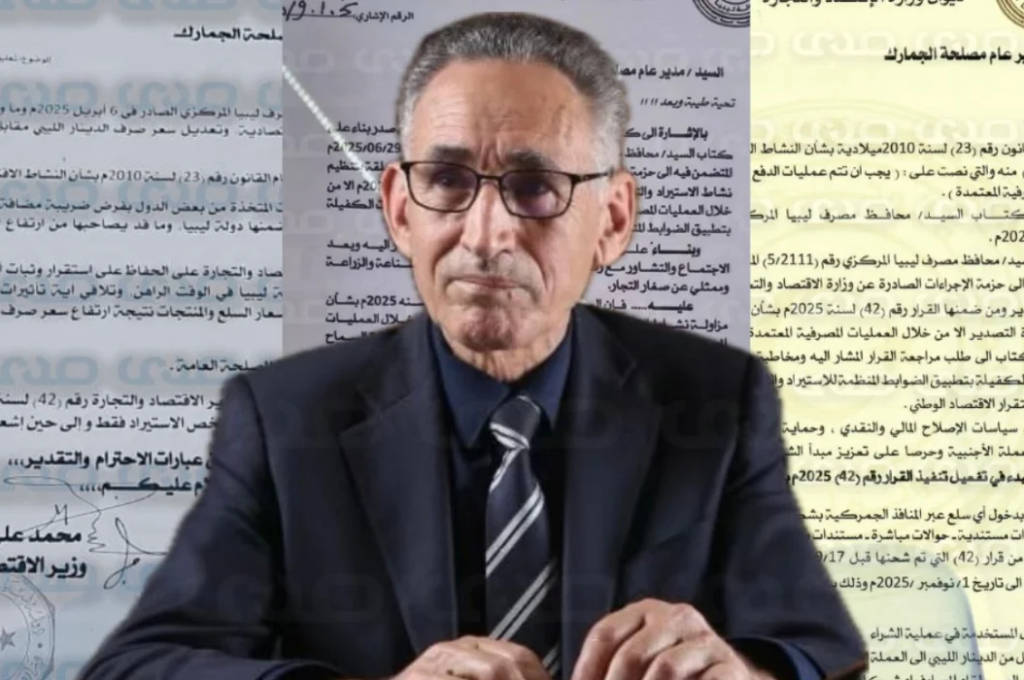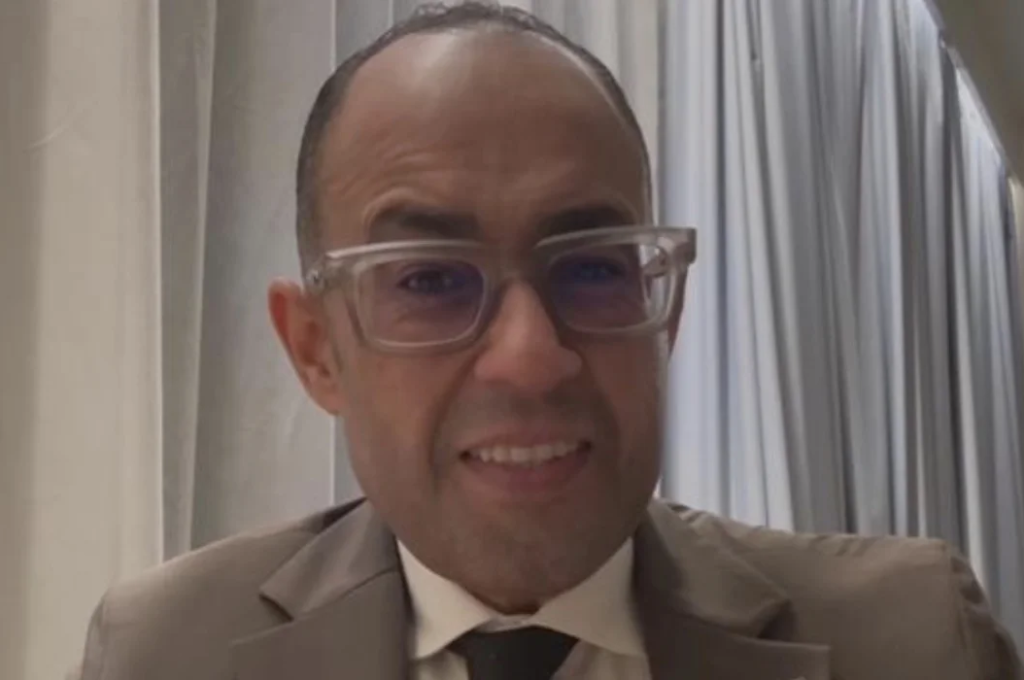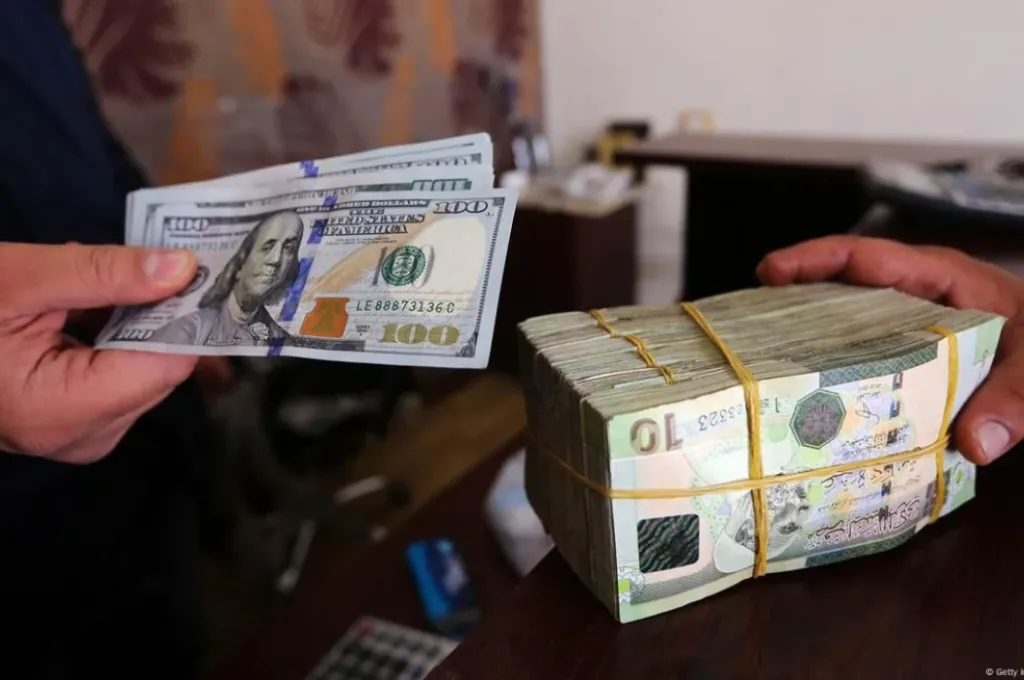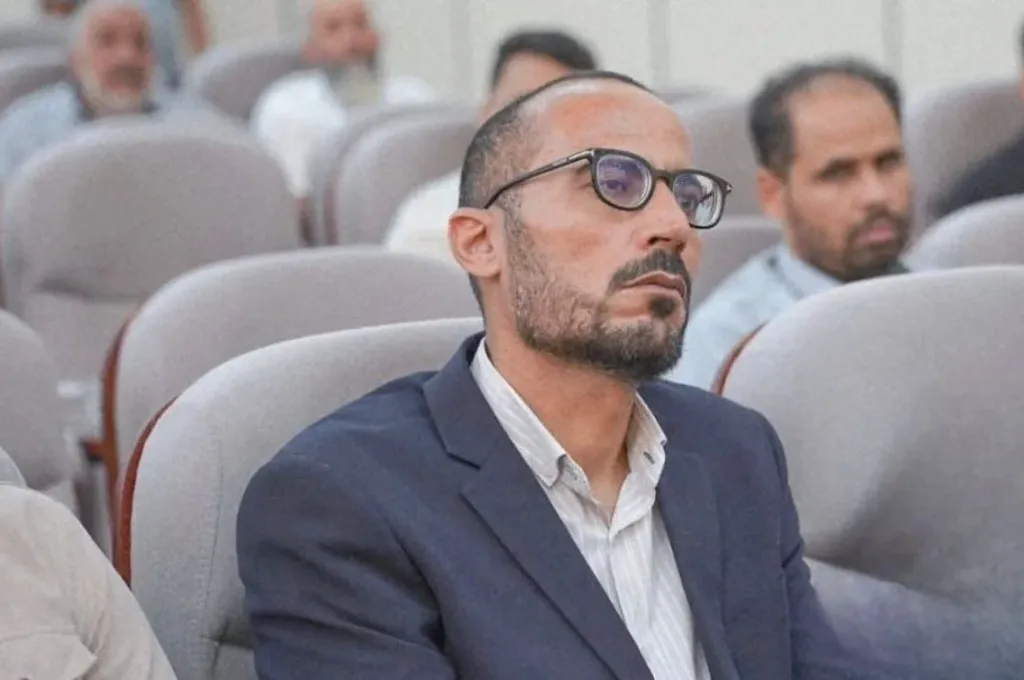News Archive
| News
Al-Barghouthi writes: “Libya and the Gold Backing of the Dinar.. Between Local Reality and Global Transformations”
Professor of Political Economy Mohamed Al-Barghouthi wrote in an article: Amid the profound transformations taking place in the global financial system, gold has reemerged as a strategic asset that restores balance to the international monetary power structure. After decades of U.S. dollar dominance as the primary reserve currency, major countries such as China, Russia, and […]
| News
Al-Sharif: “The Central Bank Announces the Possibility of Supplying Foreign Currency After Years of Involving Libyans with Cards… An Investigation Must Be Opened”
Economic expert Idris Al-Sharif said: “Who is responsible! The Central Bank states that it intends to supply $500 million in cash to be distributed to exchange companies that have recently obtained licenses to operate from the Central Bank!” He continued: “This announcement comes after many years during which the Central Bank claimed there was an […]
| News
Exclusive.. Central Bank: “We have a large cash reserve covering the withdrawn denominations, and distribution will be faster starting in October”
Our responsible source at the Central Bank revealed exclusively that banks are working to receive deposits of the withdrawn currency denominations, stressing that there will be no extension and the deadline ends on September 30. He added: “We have a large cash reserve that covers the value of the withdrawn denominations, and distribution will be […]
| News
Exclusive: Central Bank begins importing foreign currencies in cash to sell to exchange companies, with $500 million expected to be injected in the first phase
Our responsible source at the Central Bank of Libya revealed exclusively that the bank has begun procedures to import foreign currencies in cash, for the purpose of selling them directly to exchange companies to cover the market’s demand for cash for all personal purposes. According to the source, it is expected that $500 million will […]
Al-Zantouti writes: “The Possibility of Falling Oil Prices… What Should We Do?”
Financial analyst Khaled Al-Zantouti wrote an article titled: The Possibility of Falling Oil Prices… What Should We Do? In light of today’s global geopolitical shifts, we must carefully examine their impact on Libya. Regardless of our intellectual, political, or economic convictions, Libya remains our homeland and our shared refuge. The immense pressures on global oil […]
| News
Exclusive.. Central Bank Sets Additional Working Days for Collecting Banknotes Scheduled for Withdrawal at the End of September
Our source has exclusively obtained a circular from the Central Bank of Libya instructing banks to operate on Saturday, September 20, and Friday–Saturday, September 26–27. Working hours will be from 9:00 AM to 1:00 PM on Friday, and from 9:00 AM to 6:00 PM on Saturday, to facilitate the acceptance of citizens’ cash deposits of […]
| News
Exclusive.. Central Bank: After the withdrawal of the 5 and 20 dinar notes at the end of September, we will begin taking more effective steps, and all observers expect the dollar to drop
The Central Bank of Libya revealed exclusively to our source hat the difference between the dollar against the 20 and 5 dinar notes exceeded 850 dirhams. This gap was due to demand for the dollar from these denominations, which will end on October 1st, meaning speculation will decline by 850 dirhams. This will directly reflect […]
From Decision to Its Opposite… Al-Huwaij Reinforces the Image of the Confused Minister!
In a scene that exposes the state of administrative chaos, Libya’s Minister of Economy in the Government of National Unity, Mohamed Al-Huwaij, shifts back and forth between issuing decisions, withdrawing them, and then renewing them once again—turning economic policy into a tug-of-war game. Import and export regulations are no longer fixed rules governing the market; […]
Advisor Mustafa Al-Manea wrote: “At last, the U.S. Federal Reserve has cut interest rates by 25 basis points.”
In a move reflecting the flexibility of U.S. monetary policy, the Federal Reserve, led by Jerome Powell, decided to reduce interest rates by 25 basis points, bringing them to a range of 4.00%–4.25% from 4.25%–4.50%. This step confirms that the world’s largest economy continues to prioritize growth and financial stability, and remains ready to use […]
| News
Al-Hadiri Discusses the Technical and Legal Impact of Merging Libyan Oil Companies into a Single Entity
Legal expert in the oil sector, Othman Al-Hadiri, wrote: What are the technical and legal impacts of merging Libyan oil companies into a single company? How would this affect oil operations? And what is the best solution to increase production and train employees? Some industry observers in Libya have expressed varying opinions on merging oil […]
| News
Exclusive.. Market watcher from Benghazi: “A significant decline in the dollar’s price in the parallel market is expected as demand drops in line with measures to be implemented in October”
A market observer in Benghazi told our source exclusively: “With the expiration of the 20 and 5 dinar banknotes on September 30, and expectations that the Central Bank will inject billions of dollars at the beginning of October.” He added: “The announcement of launching ready-to-operate exchange companies, the ban on imports except through banking procedures […]
| News
Exclusive.. CBL: Total Demand for Letters of Credit Near $3 Billion, Equivalent to 19 Billion Dinars, to Be Covered by the Central Bank
Our senior source at the Central Bank of Libya revealed exclusively that the credit booking platform has achieved its goals, enabling all importers—including small traders—to reserve foreign currency for the purpose of opening letters of credit. The approval and coverage process is ongoing by commercial banks and the Central Bank. The source added that approvals […]
| Reports
Dbeibeh’s Convoy Passes… While Muscular Atrophy Patients Remain Trapped Between Corruption in Health and Social Affairs!
From gradual muscle weakness to a slow death where children are buried before living their childhood, this is how the journey of muscular atrophy begins—a genetic disease that turns innocent bodies into fragile shells, while the silence of the state makes it a partner in the crime. In Libya, it was said the disease was […]
| News
Exclusive… With Details… Al-Badiwi: The Goals of the Fisheries Project Include Diversifying Income Sources and Increasing Local Revenues
Fathi Al-Badiwi, the general supervisor of the pilot fish preservation laboratory project in Zliten Municipality, told our source that this institution is the result of the REBUILD project, supported by the European Union and involving 10 municipalities in local development. However, in the fisheries sector, participation was limited to five municipalities: Tobruk, Benghazi, Sirte, Zliten, […]
Abu Snina Writes on the Methodology of Measuring Deficit or Surplus in the Balance of Payments
Financial expert Mohamed Abu Snina wrote an article in which he stated: Several posts on Facebook discussed the statement of the Central Bank of Libya regarding foreign currency revenues and expenditures from January 2025 to the end of August 2025. The authors of these posts expressed observations and reservations about the numbers included in the […]



